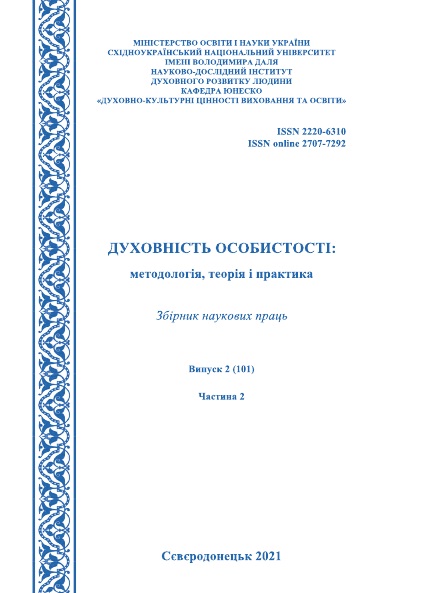ROLE OF LINGUISTIC, SOCIAL AND PSYCHOLOGICAL FACTORS IN THE PROCESS OF LEARNING FOREIGN LANGUAGE VOCABULARY
DOI:
https://doi.org/10.33216/2220-6310-2021-101-2_2-100-110Keywords:
Foreign language, vocabulary, native language, linguistic realities, social factors, psychological traitsAbstract
The authors of the article examine the features of learning a foreign language, which, in fact, is the study of the vocabulary of this language. The word is the core around which the grammatical syntax is organized. It is impossible to teach the functioning of a language that would be devoid of meaning, devoid of words. The priority of vocabulary was confirmed by linguists and methodologists at a time when the communicative method of teaching received priority. Various stages of the development of vocabulary learning in domestic and foreign methods are given and the most significant factors affecting vocabulary learning are formulated. When considering the concept of language acquisition, three different, close, but not overlapping concepts can be distinguished. This is the mastery of the native language, then the secondary awareness of the native language, which is usually associated with schooling. And, finally, it is the mastery of one or another non-native language. The system of the native language, an integral part of the student's thought, influences the subject of the study of a foreign language. Having a good enough knowledge of the vocabulary allows us to better understand the society in which we live, and increasing vocabulary throughout life is one of the ways to develop and keep up with the times. The role of contextual non-linguistic knowledge changes in the process of mastering a language by a student. The totality of explicit and implicit linguistic realities is complemented by social factors that change the learning process, because language acquisition is a socially conditioned process. Any mental activity associated with learning is due to biological factors. Learning a foreign language, based on the same linguistic realities and influenced by the same social factors, nevertheless differs from person to person, because each student brings his own psychological traits into the equation. In addition, it should be remembered that, being motivated, the learner acquires vocabulary very quickly.

